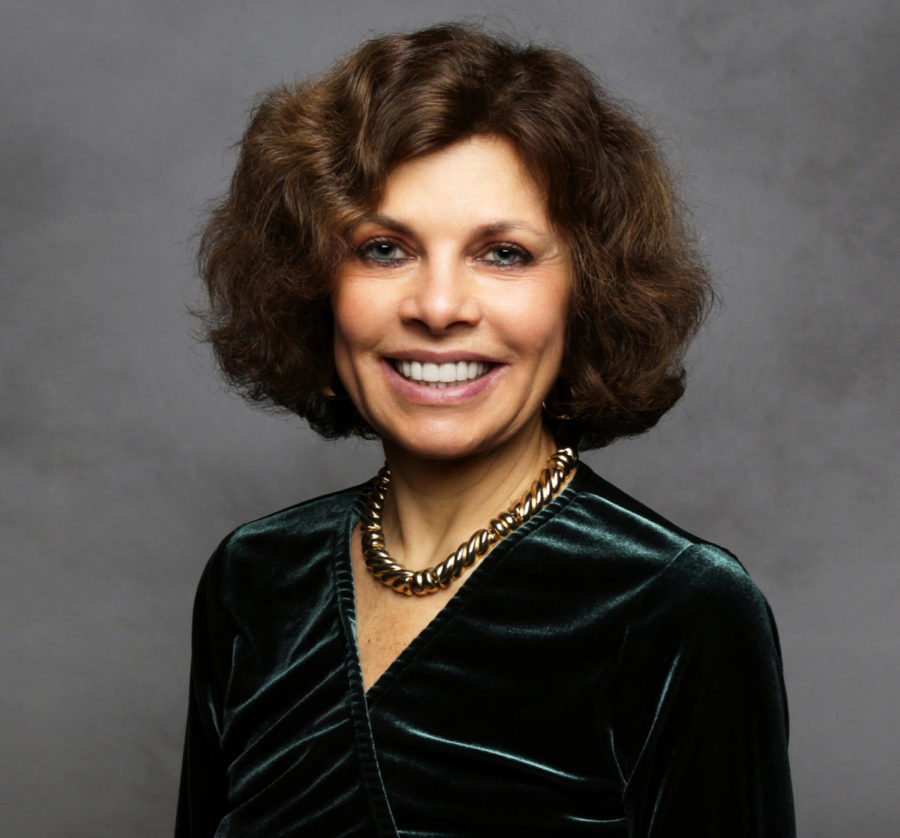Nadine Strossen gives lecture on free speech to Iowa State students
Outside of serving as the first female president of the ACLU from 1991 to 2008, Nadine Strossen has had an extensive teaching career and has written multiple books about constitutional law and civil liberties.
April 14, 2021
The Student Government Committee on Lectures hosted Nadine Strossen to give a lecture called “Hate: Why We Should Resist It with Free Speech, Not Censorship” on Wednesday as part of First Amendment Days, a weeklong celebration of the First Amendment.
Strossen is a professor of constitutional law at New York Law School and served as the first female president of the ACLU from 1991 to 2008.
Strossen was introduced by Mark Stringer, the executive director of the Iowa ACLU, and the event was moderated by Sharron Evans, associate vice president of student affairs and dean of students, and Julie Roosa, adjunct assistant professor and First Amendment specialist.
At the beginning of the event, Strossen explained the legal bounds around free speech and that cases of hate speech are only not constitutionally protected in situations in which the speaker means to instill fear of physical harm to a particular group. This policy is referred to as the emergency principle. Hate speech can also legally be used as evidence of intent if someone commits a hate crime.
Strossen then explained why free speech is important, regardless of the potential negative consequences that can arise from it.
“The fact that something is constitutionally protected is not because I, or the Supreme Court, more importantly, is denying that it does harm… [what is] more harmful, however, than the power of speech is empowering government to make decisions about speech that is disfavored based on its message,” Strossen said. “Historically … and predictably, [any law against free speech] continues to be used disproportionately against precisely those who have been most marginalized and excluded. Why? Because they lack political power and you can predict that it will be their messages that have been suppressed.”
An audience member asked if universities should take action against instances of hate speech. Strossen said she believes universities should condemn these actions when they occur. Universities should also take affirmative action to help targeted students cope with the hurt that is caused by events of hate speech and develop “habits of resiliency.”
“The university can and should … condemn the hateful messages because all of us who exercise and cherish free speech have a special responsibility to raise our voices not only to denounce the hateful messages to offer support to those who are targeted by those messages… we should constantly be engaging affirmatively in the values of equality and dignity and diversity,” Strossen said.
Strossen also said that rather than inflicting punishment and widespread shame on someone who engages in hate speech, which can sometimes afford to them the sympathy and attention they were seeking, it is more helpful to engage in the “restorative justice” that is often practiced with criminal offenders. This practice is more effective because it allows the person to learn and express regret for their actions.
“I find it somewhat ironic and inconsistent that people who are willing to give a second chance to try to intervene in a constructive rehabilitative way… even with people who have committed violent crimes, don’t offer that kind of opportunity to those who have said something that is hateful,” Strossen said.
Another question for Strossen dealt with the impact education can have on the issue of hate speech. Strossen referenced the findings of many psychologists saying the most effective way to overcome prejudice is contact with the groups they hold prejudice toward. Media depictions of marginalized groups can have the same effect, which speaks to the importance of diversity in all forms of media.
“Especially as an educational institution, we always have to look at education as something that is [a] very, very powerful force,” Strossen said.

















